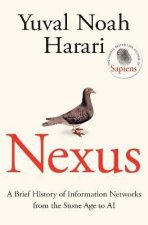
Code: 05024320
Western Classical Tradition in Linguistics
by Keith Allan
"The Western Classical Tradition in Linguistics" examines ancient, medieval, post-renaissance, and modern conceptions of linguistics (i.e. the study of language and languages). It identifies a classical tradition to which modern l ... more
- Language:
 English
English - Binding: Hardback
- Number of pages: 288
Publisher: Equinox Publishing, 2007
- More about this

14.12 €

Low in stock at our supplier
Shipping in 11 - 15 days
Potřebujete více kusů?Máte-li zájem o více kusů, prověřte, prosím, nejprve dostupnost titulu na naši zákaznické podpoře.
Add to wishlist
You might also like
-

The Book of Bill
23.70 € -14 % -

Gravity Falls Journal 3
16.44 € -23 % -

Berserk Deluxe Volume 1
44.38 € -11 % -

Pumpkin Spice Cafe
10.28 € -28 % -

Berserk Deluxe Volume 2
52.25 € -

White Nights
3.93 € -15 % -

48 Laws Of Power
17.95 € -9 % -

It ends with us
8.67 € -19 % -

Atomic Habits
19.26 € -16 % -

A Little Life
17.55 € -

Berserk Deluxe Volume 3
48.82 € -3 % -

The 48 Laws of Power
24.51 € -5 % -

Jujutsu Kaisen, Vol. 23
10.69 € -18 % -

Surrounded by Idiots
10.48 € -12 % -

Berserk Deluxe Volume 4
45.19 € -10 % -

English File Fourth Edition Intermediate (Czech Edition)
24.31 € -12 % -

Gilmore Girls: The Official Advent Calendar
28.85 € -18 % -

Iron Flame
16.23 € -18 % -

The Official Stardew Valley Cookbook
22.39 € -19 % -

Chainsaw Man, Vol. 16
10.69 € -18 % -

Nexus: A Brief History of Information Networks from the Stone Age to AI
19.16 € -3 %
Give this book as a present today
- Order book and choose Gift Order.
- We will send you book gift voucher at once. You can give it out to anyone.
- Book will be send to donee, nothing more to care about.
More about Western Classical Tradition in Linguistics
You get 35 loyalty points
 Book synopsis
Book synopsis
"The Western Classical Tradition in Linguistics" examines ancient, medieval, post-renaissance, and modern conceptions of linguistics (i.e. the study of language and languages). It identifies a classical tradition to which modern linguistics owes a very clear debt. For example, Aristotle takes language to be (A) a symbolic system that represents (B) the world of our experience as it is contained within the mind. He believed (C) the world is external to human beings, who are all capable of (D) perceiving the same things within it. Finally, (E) Aristotle was only interested in form as a corollary of function. (A-E) have given rise to different developments in linguistics. (A) is a premise for all linguists, but has been developed, perhaps to its limits, in post Fregean semantics. From the last quarter of the 20th century, (B) has been pursued by cognitive linguists. (C) was taken up by the speculative grammarians of the late middle ages who looked to the structure of God's world as informing the structure of universal grammar. The rationalists of the 17th and 18th centuries took up (D), revising the interpretation of their speculative precursors to seek universal grammar in the God given rational minds of the human beings perceiving the world around them. Chomsky reinterprets the rationalist doctrine to seek universal grammar in the human mind while eschewing the relevance of human perception of anything other than linguistic input. Functional linguistics has picked up on (E). So, today's formal linguists, cognitivists, functionalists, and Chomskyites may often be at odds with each other, but all tread in Aristotle's footprints within the western classical tradition. There have been times when linguists stepped outside of the tradition, but they nearly always borrowed from it. Throughout the book, contemporary views on the study of language are discussed with a view to establishing the contemporary philosophy of linguistics.
 Book details
Book details
Book category Books in English Language linguistics Historical & comparative linguistics
14.12 €
- Full title: Western Classical Tradition in Linguistics
- Author: Keith Allan
- Language:
 English
English - Binding: Hardback
- Number of pages: 288
- EAN: 9781904768951
- ID: 05024320
- Publisher: Equinox Publishing
- Weight: 828 g
- Dimensions: 234 × 156 × 27 mm
- Date of publishing: February 2007
Collection points Bratislava a 2642 dalších
Copyright ©2008-24 najlacnejsie-knihy.sk All rights reservedPrivacyCookies


 15549 collection points
15549 collection points Delivery 2.99 €
Delivery 2.99 € 02/210 210 99 (8-15.30h)
02/210 210 99 (8-15.30h)